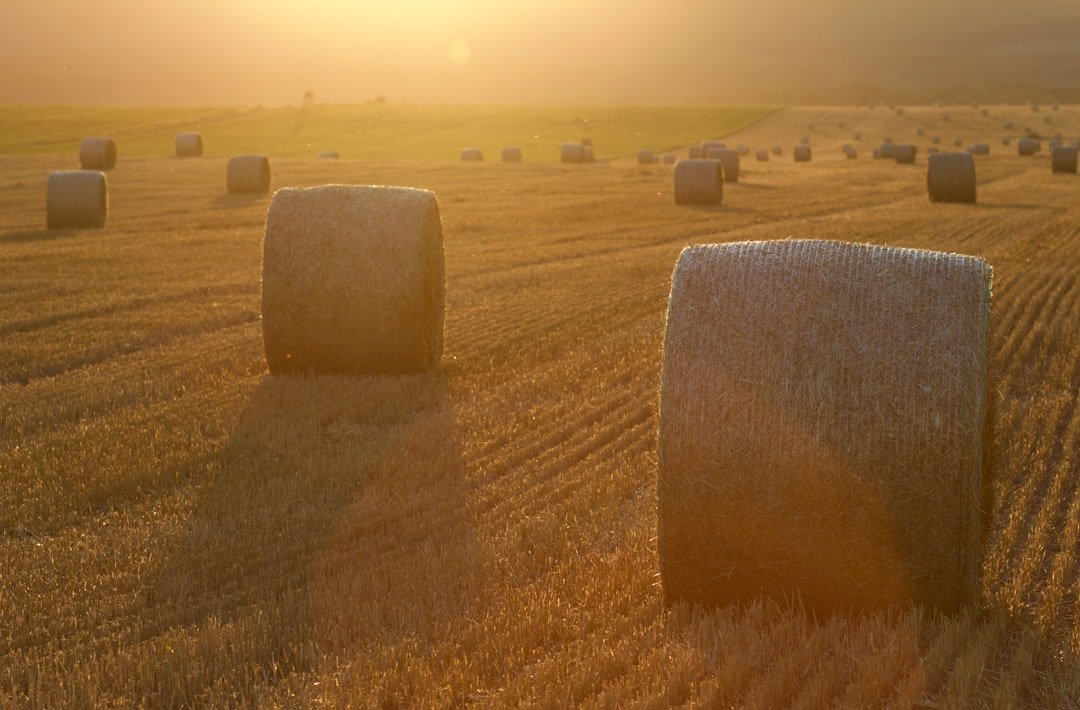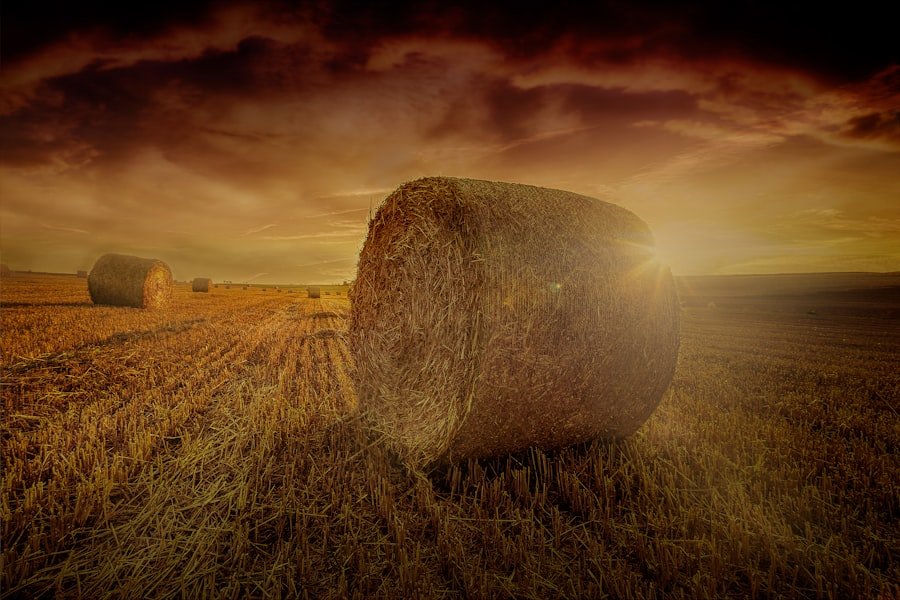How to Start a Successful Hay Bale Business (Master Class)

The hay bale business is a crucial part of the agricultural industry, providing essential feed for livestock such as horses, cows, and sheep. Understanding the hay bale business involves knowing the different types of hay, such as alfalfa, timothy, and clover, and their nutritional value for various animals. It also requires knowledge of the hay baling process, including cutting, drying, and baling the hay to preserve its quality. Additionally, understanding the market demand for hay bales and the seasonal fluctuations in supply and demand is essential for success in this industry.
Furthermore, understanding the hay bale business involves recognizing the importance of quality control and customer satisfaction. Ensuring that the hay bales are free from mold, dust, and other contaminants is crucial for maintaining the health of the animals consuming them. Moreover, building strong relationships with suppliers and customers is vital for a successful hay bale business. By understanding the needs and preferences of both suppliers and customers, you can ensure a steady supply of high-quality hay bales and a loyal customer base.
Key Takeaways
- The hay bale business involves producing and selling hay bales for various purposes such as animal feed, landscaping, and construction.
- Selecting the right location and equipment is crucial for the success of a hay bale business, as it can impact production efficiency and transportation costs.
- Building strong relationships with suppliers and customers is essential for securing a steady supply of quality hay and maintaining a loyal customer base.
- A strong marketing strategy is important for reaching potential customers and differentiating the business from competitors in the market.
- Managing finances and pricing effectively is key to ensuring profitability and sustainability in the hay bale business.
- Ensuring quality control and customer satisfaction is vital for maintaining a good reputation and attracting repeat business.
- Expanding and diversifying the hay bale business can open up new opportunities for growth and increased revenue.
Selecting the Right Location and Equipment
Selecting the right location for your hay bale business is crucial for its success. Ideally, you should choose a location with ample access to farmland for growing hay and a central location for distribution to your customers. Additionally, having easy access to transportation routes such as highways and railways can streamline the distribution process and reduce transportation costs. Furthermore, selecting a location with favorable weather conditions for hay production, such as adequate rainfall and sunlight, is essential for maximizing crop yield and quality.
In addition to choosing the right location, selecting the appropriate equipment is essential for efficiently producing and baling hay. This includes tractors for cutting and raking the hay, balers for compressing the hay into bales, and storage facilities for preserving the hay bales. Investing in modern and reliable equipment can improve productivity and reduce operational costs in the long run. Moreover, having a maintenance plan in place for your equipment is crucial for preventing breakdowns and ensuring a continuous supply of high-quality hay bales.
Building Relationships with Suppliers and Customers
Building strong relationships with suppliers and customers is essential for the success of your hay bale business. Developing a network of reliable suppliers who can provide high-quality hay for your business is crucial for maintaining a consistent supply of feed for your customers’ livestock. By establishing long-term partnerships with these suppliers, you can negotiate favorable pricing and ensure a steady flow of inventory for your business. Additionally, building strong relationships with your customers is vital for creating a loyal customer base and generating repeat business.
Furthermore, understanding the needs and preferences of your customers can help you tailor your products and services to meet their specific requirements. This may involve offering different types of hay bales to cater to various livestock species or providing delivery services to accommodate your customers’ logistical needs. Building trust and rapport with your customers through excellent customer service and reliable product quality can set your hay bale business apart from competitors and foster long-term customer loyalty.
Creating a Strong Marketing Strategy
Creating a strong marketing strategy is essential for promoting your hay bale business and attracting new customers. This may involve developing a brand identity that reflects the quality and reliability of your products, as well as establishing an online presence through a professional website and social media platforms. Utilizing digital marketing techniques such as search engine optimization (SEO) and targeted advertising can help increase your business’s visibility and reach a wider audience of potential customers.
Moreover, participating in agricultural trade shows and industry events can provide valuable networking opportunities and exposure for your hay bale business. By showcasing your products and services at these events, you can connect with potential customers and suppliers while gaining insights into market trends and competitors. Additionally, offering promotions and discounts to new and existing customers can incentivize sales and generate word-of-mouth referrals, further expanding your customer base.
Managing Finances and Pricing
Managing finances and pricing is crucial for maintaining profitability in the hay bale business. This involves carefully monitoring production costs, including labor, equipment maintenance, and overhead expenses, to ensure that your pricing strategy covers these costs while remaining competitive in the market. Conducting regular financial analysis can help identify areas for cost savings and efficiency improvements, ultimately maximizing your business’s profitability.
Furthermore, understanding market trends and demand fluctuations can inform your pricing strategy, allowing you to adjust prices according to seasonal variations in supply and demand. Offering flexible pricing options such as bulk discounts or subscription services can attract larger orders from commercial livestock operations while providing value to your customers. Additionally, implementing efficient inventory management practices can minimize waste and spoilage while optimizing stock levels to meet customer demand.
Ensuring Quality Control and Customer Satisfaction

Ensuring quality control and customer satisfaction is paramount in the hay bale business. Implementing rigorous quality control measures throughout the hay production process, from harvesting to baling and storage, is essential for delivering high-quality products to your customers. This may involve regular testing for moisture content, mold, and nutritional value to ensure that your hay bales meet industry standards and customer expectations.
Moreover, providing exceptional customer service by addressing customer inquiries and concerns in a timely manner can enhance customer satisfaction and loyalty. Offering flexible delivery options and accommodating special requests from your customers can demonstrate your commitment to meeting their needs. Additionally, seeking feedback from your customers on their experience with your products and services can provide valuable insights for continuous improvement and maintaining high levels of customer satisfaction.
Expanding and Diversifying Your Hay Bale Business
Expanding and diversifying your hay bale business can open up new opportunities for growth and revenue generation. This may involve exploring new markets or customer segments that have a demand for hay bales, such as equestrian centers, petting zoos, or landscaping companies. By identifying niche markets that align with your business’s capabilities, you can expand your customer base while differentiating your products from competitors.
Furthermore, diversifying your product offerings by introducing value-added products such as hay pellets or specialty blends can cater to specific customer preferences and create additional revenue streams for your business. Additionally, expanding into related agricultural products or services, such as straw bales or pasture management consulting, can leverage your existing expertise and infrastructure while providing complementary offerings to your customers.
In conclusion, understanding the hay bale business involves recognizing the importance of quality control, customer satisfaction, strong relationships with suppliers and customers, a robust marketing strategy, effective financial management, selecting the right location and equipment, as well as expanding and diversifying your business. By focusing on these key areas, you can position your hay bale business for long-term success in the agricultural industry.
Looking to expand your agricultural business beyond hay bales? Check out the insightful article on “The Ultimate Guide to Diversifying Your Farm Business” at howtostart.digital. Learn valuable tips and strategies for branching out into new ventures and maximizing your farm’s potential. Whether you’re interested in adding new crops, exploring agritourism opportunities, or launching a farm-to-table operation, this article provides expert advice to help you succeed in diversifying your farm business.
FAQs
What is a hay bale business?
A hay bale business involves the production and sale of hay bales, which are used as animal feed or bedding for livestock.
What are the key steps to starting a successful hay bale business?
Key steps to starting a successful hay bale business include conducting market research, securing a reliable source of hay, investing in the necessary equipment, and developing a marketing and sales strategy.
What equipment is needed to start a hay bale business?
Equipment needed to start a hay bale business may include a tractor, hay baler, hay rake, hay tedder, and storage facilities such as barns or sheds.
What are some potential challenges in starting a hay bale business?
Potential challenges in starting a hay bale business may include fluctuating hay prices, weather-related risks, and competition from other hay producers.
How can I market and sell hay bales effectively?
Effective marketing and sales strategies for hay bales may include building relationships with local farmers and ranchers, attending agricultural trade shows, and utilizing online platforms to reach a wider customer base.
What are some tips for maintaining a successful hay bale business?
Tips for maintaining a successful hay bale business may include consistently providing high-quality hay, staying informed about market trends, and continuously seeking ways to improve efficiency and productivity.





